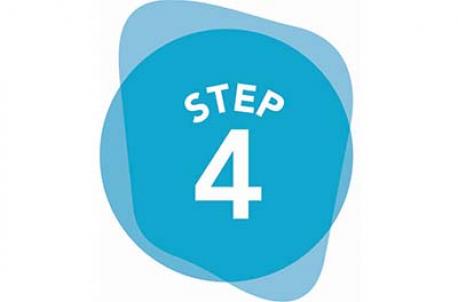
Orchestrate Engagement: As stressed in earlier steps, engaging with your participants and knowledge providers is integral to good knowledge exchange. During implementation this is especially true. Here are some tips on how to engage for success.

Orchestrating Engagement
- Solicit input early. This helps stakeholders get involved and stay involved.
- Deal with people at a personal level.
- Build trust. The more participants are involved and the more you listen, the more they will trust you.
- Escalate and resolve doubts, and deal with entrenched and noncooperative participants at an early stage.
- Acknowledge active participation.
- Be a model “host”; encourage similar behavior from your delivery team and even participants.
- Make sure this is a consultative process. Your participants are your best allies in making this journey successful. Publicly acknowledge the good work of knowledge providers and delivery partners.
Build Relationships: Delivery is about relationships--aligning people intellectually, emotionally, and psychologically. Relationships can inspire, support, inform, and facilitate the learning process and action towards the change objective. As a broker, look to strengthen relationships with knowledge providers and between knowledge seekers and providers. Most importantly, help participants build relationships among each other. They will gain big dividends later in terms of collaboration and ongoing learning and support.
“The South-South exchange was enormously helpful. This exchange brought the position of the government and the position of indigenous organizations closer together because we participated together.” ~ Roman Alvarez, National Coordinator of 2nd Land Administration Project

Building relationships with and among participants
- Be personable. Get to know everyone, know their work, be cognizant of their primary learning objectives, and ask them to share their experiences with the group.
- Build in ample time for participant networking, socializing, and group collaboration. These networks may endure and perhaps become the most significant driver of change in the longer term.
- Encourage participants to work, talk, meet, eat, and play with members of the group they don’t know well, or in certain activities pair up participants from different streams of work. Mixing things up like this not only gives them a chance to learn about areas outside their immediate expertise, it also helps them build a richer set of relationships to tap into.
- Openly recognize and commend participants for taking time away from their desks, families, and lives for this exchange to grow personally and professionally. Encourage them to make the most of this special opportunity and get to know each other.

A Forum spurs long-term connections
In Latin America and the Caribbean (LAC), practitioners who help resettle and restore the livelihoods of displaced populations generally do so ad-hoc and have little access to best practices or other professional contacts. If managed poorly, displaced populations can experience severe impoverishment and degradation of living conditions.
Between 2004 and 2005, the World Bank held a videoconference-based knowledge exchange program to help connect resettlement staff and source and disseminate best practices. Demand for the knowledge exchange was overwhelming. In response, the World Bank and the Global Development Learning Network (GDLN) orchestrated a three-day forum in Bogota, Colombia in May 2005.
Hercillia Obregon, a Peruvian freelance resettlement professional, said that the Forum allowed her to “gather experiences of other realities, which have allowed [her] to innovate and improve processes … [as well as to] clarify questions that arise in daily practice.”
The forum included a strong networking component and participants sought to stay connected. They used multiple videoconferences and established an online forum that is still active today.
“The Network has been very helpful for my professional work on several projects here in my country…. Through the [COP-brokered] ‘library’ and resulting discussions, I have been able to share in many of the experiences of colleagues in Latin America,” said Tagle Jose Soto, an independent resettlement consultant in Peru. ~ Knowledge Broker: Elena Correa, LAC Region, The World Bank

Remember that building relationships is an incremental process, so be sure to systematically allocate enough time for it in your knowledge exchange.
Your delivery team is now more important than ever. You can’t get bogged down in the daily planning and logistics. You will need to be paying attention to what’s happening (or not!), anticipate challenges, and steer participants to their desired destination.

 China
China Colombia
Colombia Denmark
Denmark India
India Indonesia
Indonesia Mexico
Mexico Russian Federation
Russian Federation Spain
Spain United Kingdom
United Kingdom